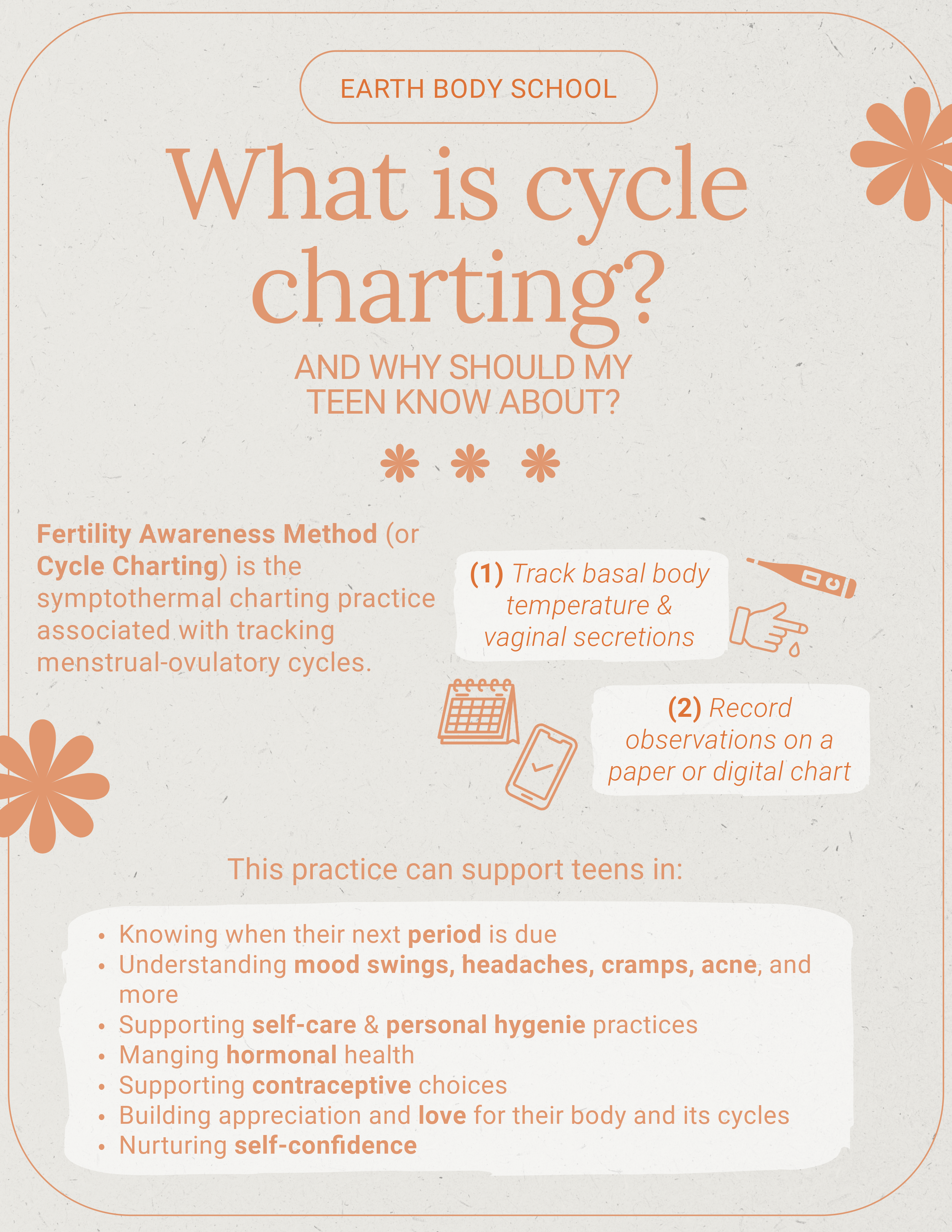Teen Cycle Support
The physiological and emotional changes of puberty can be dizzying for parents and teens alike. But you’re not alone!
I believe that all adolescents and their caregivers should have access to accurate information about puberty and changing bodies.
I aim to offer support to adults who may not have had a comprehensive education about what happens during puberty (I certainly didn't!) so they can empower youth to better understand their bodies and themselves.
Below, you’ll find a range of resources to help you navigate puberty and support your teen’s cycle health.
I hope these resources offer you a better understanding of puberty so you can have a closer relationship with your teen.
-Kate (FAE, SHE)
Earth Body School
Body Talk
Dive Deeper
Looking for 1:1 Guidance?
I offer 1:1 consults for caregivers and teens to discuss your unique needs and offer bespoke cycle/hormonal health support. Book your free discovery call below so I can find out more about your individual needs!
What is a “Normal” Cycle?
In conversations with your teen about cycle health, you both may have additional questions around what is normal for them.
At Earth Body School, we have a range of online offerings to help build body literacy for caregivers and teens:
Teen Hormone Health for Parents/Caregivers
Anatomy/Physiology of the Reproductive System
Cycle Charting for Teens
1:1 Sessions for Cycle/Hormone Support
Cycle Charting for Teens
Cycle tracking is the charting practices associated with tracking our cycles and fertility.
What can cycle charting offer your teen?
-
Charting removes the guesswork and lets your teen plan ahead. It will allow your teen to bring the right supplies to school and know what to pack on vacation.
-
If your teen is getting headaches, PMS, or acne, they can note this on their chart. Noting when symptoms like this appear in your cycle can be clues to what kind of tending and support they need and what factors might trigger them.
-
The Cycle Charting practice consists of tracking vaginal secretions and basal body temperature. These two factors might show you how travel affects your body - how different supplements might affect you - and many more. Again, by tracking it all on a chart it can put things in a cyclical context.
-
Infections - especially yeast infections - are quite common, even if teens who aren’t sexually active. By charting their cycle every day, your teen will know the different between healthy secretions and the symptoms of a vaginal infection.
-
One of the gifts of charting is that you can become a real partner in your healthcare. Cycle charting can not only alert you to acute conditions but also allow your teen to be more well versed in offering their cycle history at routine doctor’s visits. They’ll know what anatomy the doctor is examining and perhaps why.
For your teen
⋆
For your teen ⋆






